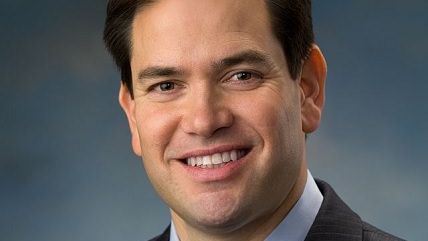Rubio the Average American
NY Times investigations paint Rubio as pretty average, something candidates can pay millions trying to look like

Marco Rubio bought a bunch of stuff he probably couldn't afford. Welcome to America.
So The New York Times has pulled together another hit piece—this one insinuating that Rubio, who the newspaper evidently believes is the GOP front-runner, is both a reckless spendthrift and a financial failure.
The story—either clumsily or, more likely, deliberately—confuses offshore fishing boats with "luxury speedboats" and pickup trucks with SUVs to render a distasteful account of Rubio's financial life. But what we really learned is that though Rubio is not great with money, the senator from Florida has relatively modest desires, considering his fame. And his story features the kinds of struggles that middle-class voters often face when juggling bills, family and their investments.
Rubio, The Times tells us, made a series of decisions over the past 15 years "that experts called imprudent." Rubio stacked up "significant" debts before his big payday. And he "splurged" on "extravagant" purchases after securing his $800,000 advance in a book deal. He has a "penchant" for spending heavily on "luxury items," such as a boat in Florida, and he also leased a 2015 Audi Q7—after receiving that sizable advance.
It didn't end there. The Rubios went nuts with an "in-ground pool"—instead of a cheaper aboveground model—a "handsome" brick driveway, "meticulously manicured shrubs" and "oversize windows." At the same time, Rubio—one of the poorest senators, according to the Center for Responsive Politics—also carried a "strikingly low" savings rate, the newspaper points out. And his inattentive accounting methods lost him more money.
As far as the politics go, The New York Times could not have done Rubio a bigger favor. Convincing voters that you're one of them typically takes millions, a fabulist tale about your upbringing and maybe a Chipotle stop or two. Convincing them that you have empathy for their situation is an even more formidable task. But Rubio is now you. As Christopher Hayes tweeted, "starting to think Rubio has some plant in the NYT and these supposed 'hit-jobs' on him are false flags made to make him look sympathetic."
The question is: Does any of this really matter to voters?
I'm typically uninspired by candidates who pretend to be like me or, even worse, are anything like me. I'm terrible. I wouldn't trust me with anything too serious, and I probably wouldn't trust you, either. So when I do vote, my decision is driven by the ideological outlook of a candidate or, as is far more often the case, how much I detest the ideological outlook of the rival candidate. Whether that candidate is a billionaire or spends spare time helping orphans with autism in inner cities or shovels his own snow does not matter. People with compelling ideas and the right temperament for the job can emerge from any facet of society.
But I realize many Americans disagree. They distrust elites. They desire candidates who understand them. Rubio certainly has something that neither Mitt Romney nor George W. Bush could muster: a non-theoretical grasp of how a child of working-class parents can find success in America.
So there really is nothing inherently inappropriate about the media's scrutinizing the fiscal lives of candidates. If you're going to run for president, there's no reason voters shouldn't be curious about your past conduct and choices—especially in an age when politicians have few qualms about involving themselves in your personal choices. The problem with the New York Times investigation is not so much that it's a transparent attempt to paint Rubio as an unfit candidate but that the paper exhibits an ugly double standard in coverage.
Listen, some folks make $100,000 trading cattle futures their first time out of the gate, and others have to take on mortgages and wait years for any profit.
Which reminds me. Watching fans of Hillary Clinton's attacking Rubio for his fiscal failings should be a comic experience. That's not because Clinton is preposterously wealthy for someone who has accomplished so little. It's because Clinton got her hands on gobs of cash in a truly detestable manner. Not only has she peddled her influence but also that influence was bought with the success of someone else's name. If 2016 pits Rubio against Clinton, it won't pit a guy who has trouble balancing a checkbook against a prosperous and talented woman. It'll be a race that pits a person whose greed and corruption go back decades against a guy whose dream, according to The New York Times, is a fishing boat and a nice car—the kind of items that even average Americans regularly covet.
COPYRIGHT 2015 CREATORS.COM


Show Comments (55)